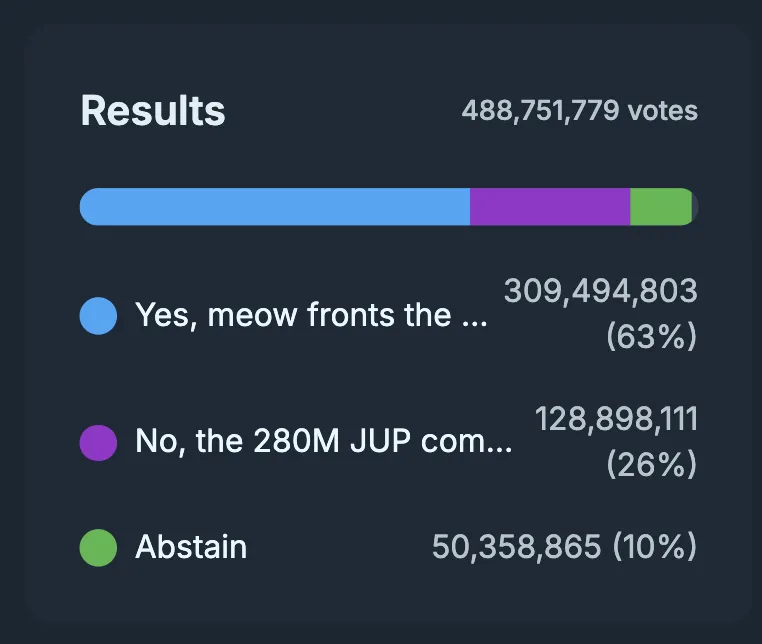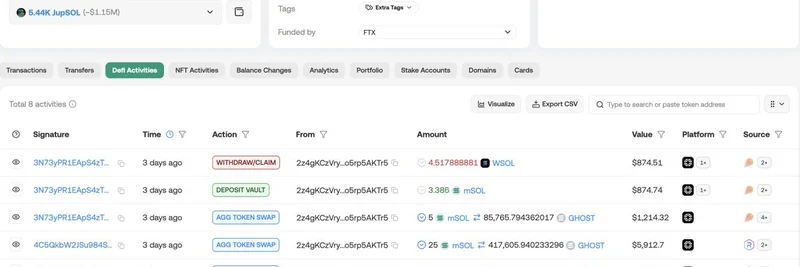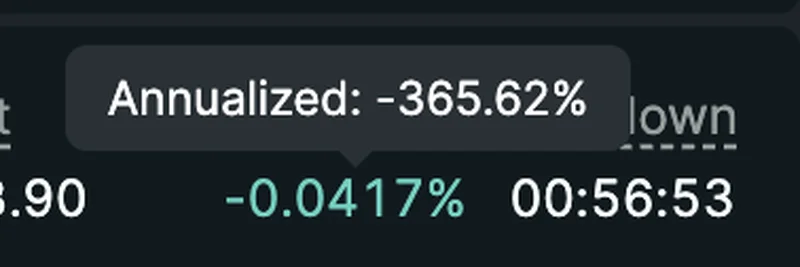Hey there, crypto enthusiasts! If you’ve been keeping an eye on the Solana ecosystem, you might have heard about the buzz surrounding Jupiter’s latest governance decision. On March 11, 2025, a post from SolanaFloor revealed that Jupiter co-founder "weremeow" successfully passed a controversial proposal called the "2030 Lock-In," locking 280 million $JUP tokens until 2030—and earning an extra 220 million $JUP bonus in the process. Let’s break it down in simple terms and explore why this has the community buzzing.
What’s the 2030 Lock-In Proposal All About?
Jupiter is a major decentralized exchange (DEX) on the Solana blockchain, known for its fast transactions and growing popularity. The "2030 Lock-In" proposal, put forward by weremeow, was meant to show his long-term commitment to Jupiter’s ecosystem, dubbed the "Jupiverse." Here’s the gist:
- Weremeow suggested locking up 280 million $JUP tokens (allocated for around 65 new team members) until 2030 instead of pulling them from Jupiter’s strategic reserve.
- In return, he’d receive a 220 million $JUP token bonus, bringing his personal allocation to 500 million tokens—or about 7% of the total $JUP supply.
- This lock-in means his tokens stay inaccessible until 2030, unlike their original unlock schedule.
The proposal passed with a whopping 63% approval from the community, based on a vote with nearly 489 million total votes, as shown in the poll results shared by SolanaFloor. But not everyone’s happy about it—let’s dive into the controversy.
Why Is This Stirring Up So Much Debate?
While the idea of locking tokens long-term might sound like a good way to ensure stability, the community has raised some big concerns:
Fairness and Dilution: Many $JUP holders worry that giving weremeow such a large bonus (220 million tokens) dilutes the value of their own holdings. It’s like giving one person a bigger slice of the pie, leaving less for everyone else.
Insider Influence: Some users, like RichQueen in the thread, questioned whether the Jupiter team used their significant staking power to sway the vote. This raises questions about the fairness of decentralized governance—should a few big players have so much influence?
Past Controversies: Jupiter has faced scrutiny before, especially with memecoin launches like $LIBRA, where allegations of insider trading and pump-and-dump schemes surfaced. As noted in BitPinas, these incidents have made some community members skeptical of Jupiter’s transparency, and the 2030 Lock-In feels like déjà vu for some.
In the thread, reactions ranged from support—like Dabba Network saying, “63% voted YES so the community has spoken”—to criticism, with Gary | Remora sharing a meme about skewed governance votes. Even SolanaFloor itself noted “strong community criticism” in the update post.
What Does This Mean for Jupiter and $JUP?
The vote’s 63% approval shows that a majority of $JUP token holders trust weremeow’s vision for Jupiter’s future. Locking his tokens until 2030 could signal stability and long-term commitment, potentially boosting confidence in the platform. However, the backlash suggests there’s work to be done to rebuild trust, especially among those who feel the proposal benefits insiders too much.
As SolanaFloor reported, this controversy even sent $JUP prices spiraling toward all-time lows, showing how governance decisions can directly impact token value. It’s a reminder that in decentralized finance (DeFi), community trust is everything.
The Bigger Picture: Solana’s Ecosystem
Jupiter isn’t the only player in Solana’s ecosystem facing scrutiny. Solana itself is known for being fast, decentralized, and energy-efficient, as highlighted on Solana’s website. But with the rise of memecoins and DEXs, controversies like this one show how tricky it can be to balance innovation, decentralization, and fairness.
For those curious, you can dive deeper into Jupiter’s governance process on their voting platform vote.jup.ag. The 2030 Lock-In is just one example of how Solana’s community-driven projects navigate big decisions—and why they often spark passionate debates.
Final Thoughts
The Jupiter $JUP 2030 Lock-In proposal’s passage with 63% approval is a landmark moment for the Solana ecosystem. It shows the power of decentralized governance but also highlights the challenges of keeping everyone happy. Whether this move will secure Jupiter’s future or deepen community divides, only time will tell. For now, it’s a hot topic worth watching—especially if you’re invested in $JUP or the broader Solana space.




